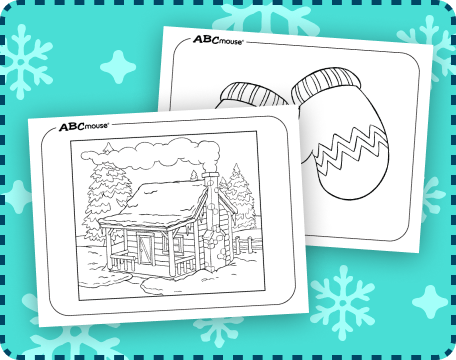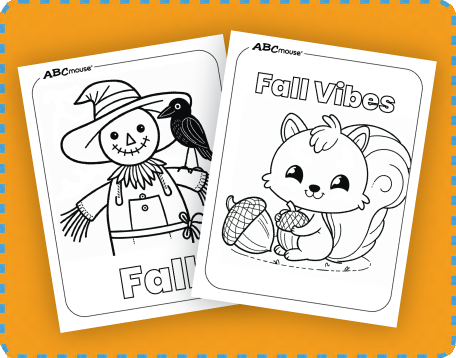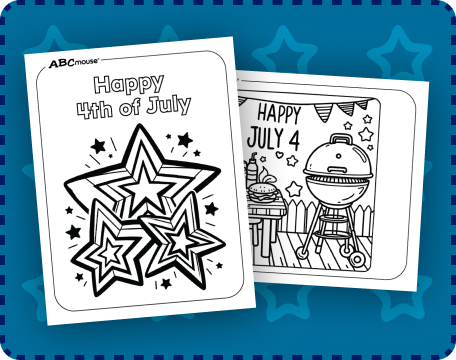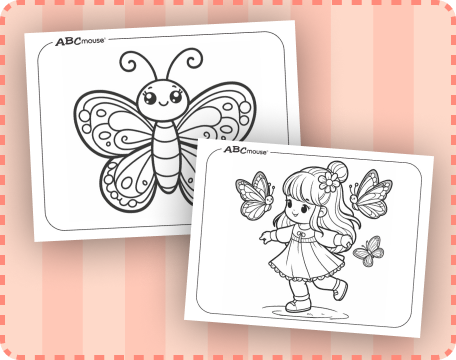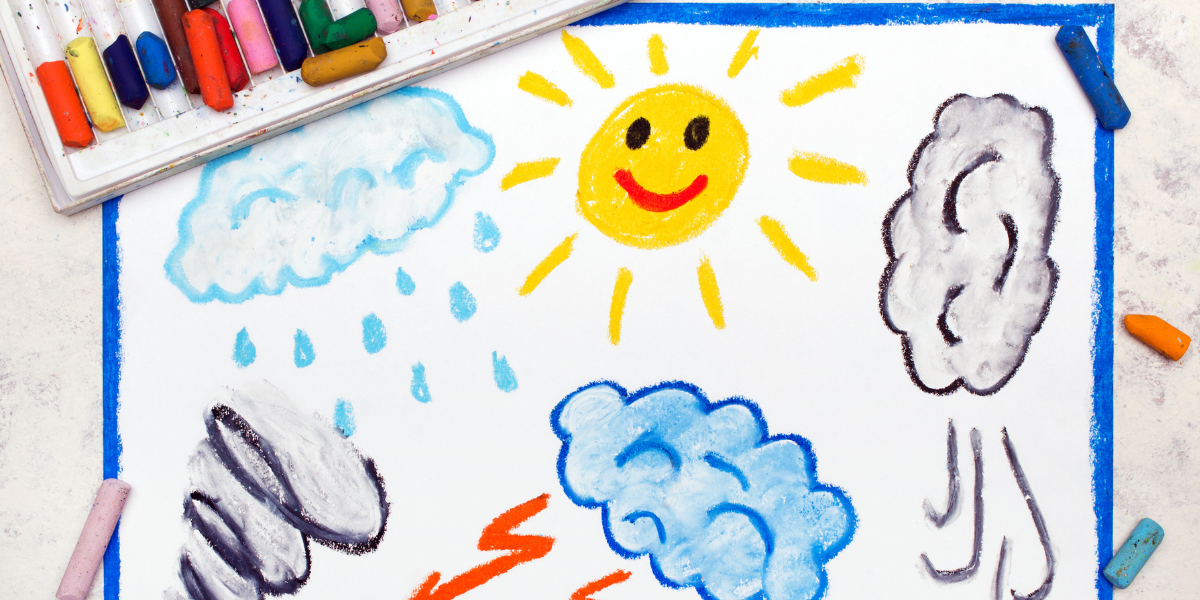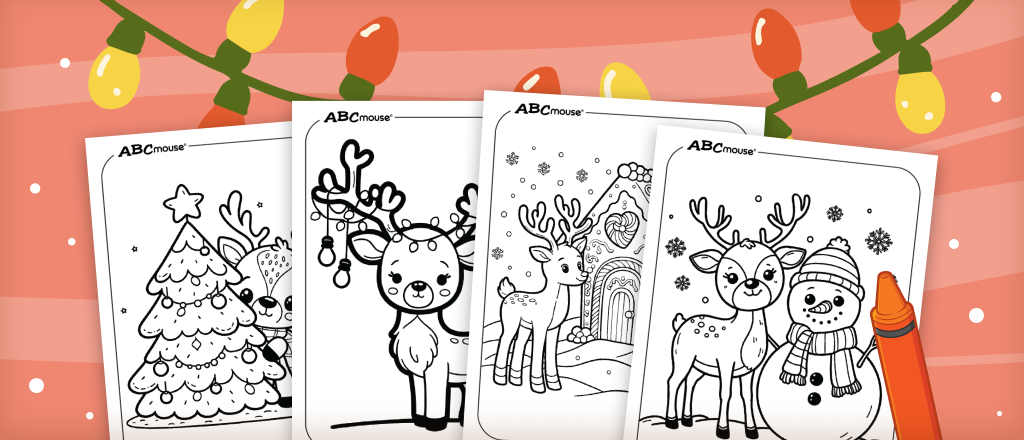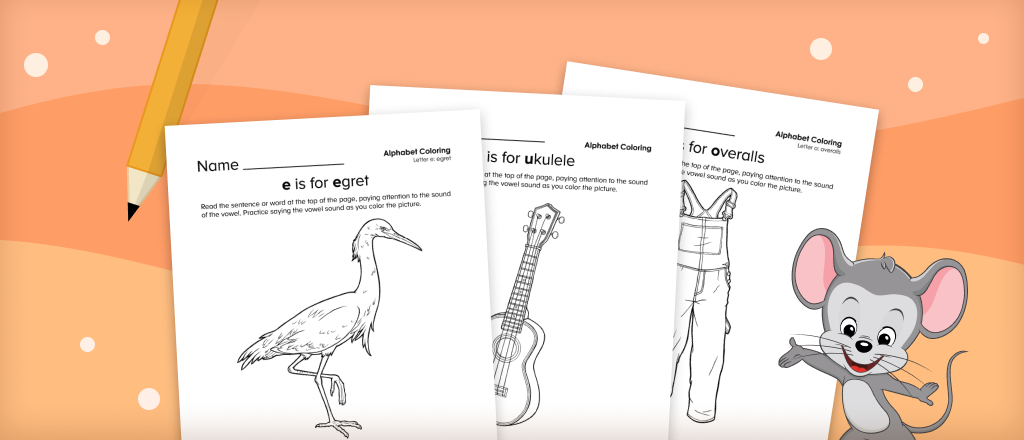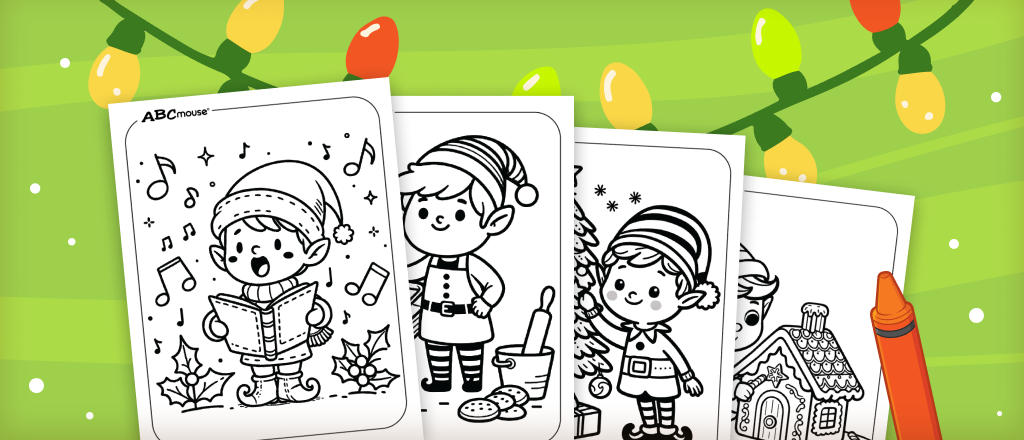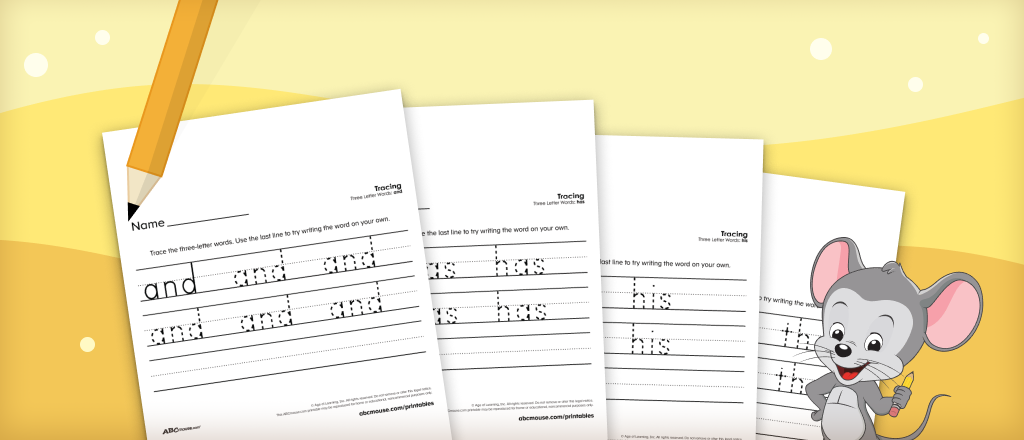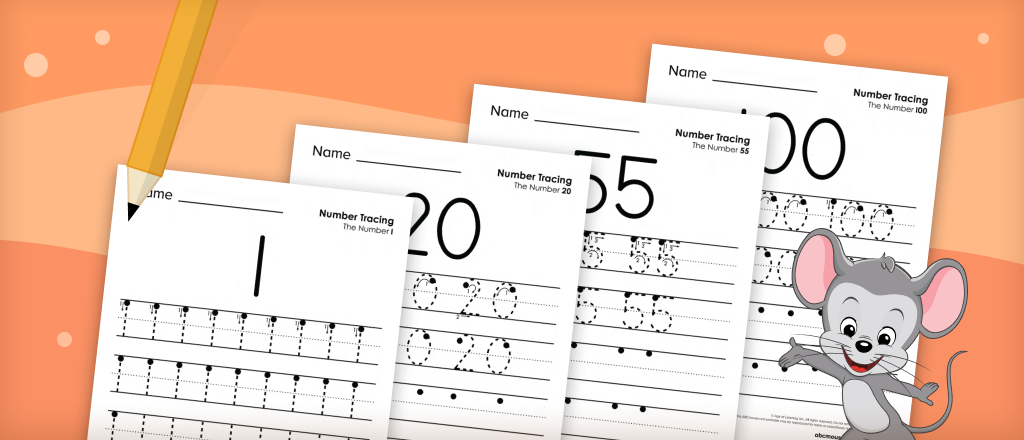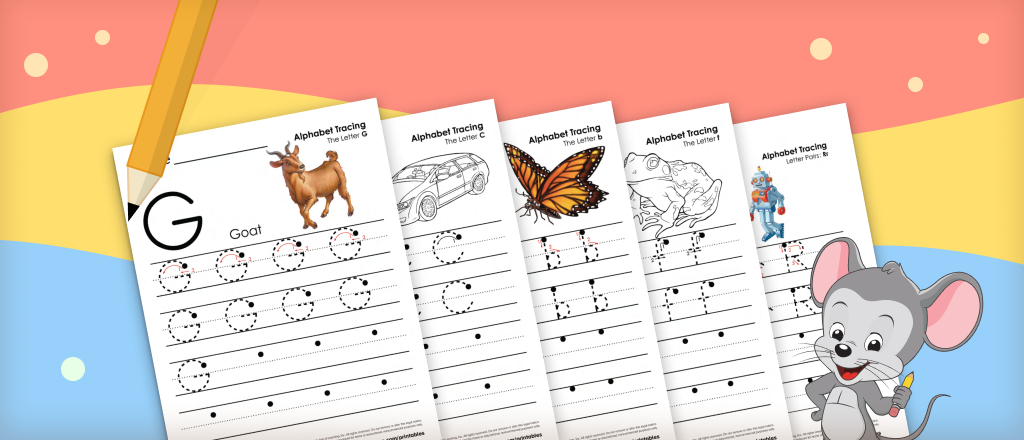Learn the Months of the Year with ABCmouse
Share
This catchy song will have kids reciting the months of the year in no time.
Just like they need to know the days of the week, young children also need to learn the months of the year, as it introduces them to the idea of time, calendars, and seasons.
As always, ABCmouse aims to make learning essential concepts fun and engaging, which is why we turned the months of the year into a playful tune for children to sing. Adults–don’t be surprised if this song gets stuck in your head, too!
🎶 Watch: ABCmouse’s “Months of the Year” Song!
Start learning the months of the year with our catchy sing-along song! In this lively video, kids can:
- Sing along to a memorable tune that reinforces learning.
- Learn all 12 months of the year in order.
- See the spelling of each month, along with scenes illustrating the seasons and events of each month.
Here are the lyrics so you and your child can sing along:
January, February, March,
April, May, June,
July, August, September,
October, November, December!
These are the names of the months. There are 12 months in a year.
We know the names of the months. We sing along when we hear…
January, February, March,
April, May, June,
July, August, September,
October, November, December!
We see the names of the months on the calendar every day.
We know the names of the months! We sing them and shout Hooray!
January, February, March,
April, May, June,
July, August, September,
October, November, December!
Hooray!
Why Learning the Months is Important for Kids
Understanding the months of the year helps children:
- Build a sense of time and sequence
- Understand when key events like birthdays and holidays happen
- Explore concepts like seasons and weather patterns
- Navigate a calendar
Tip: Most children begin to recognize the months by age 3–4 with help from simple songs and visuals.
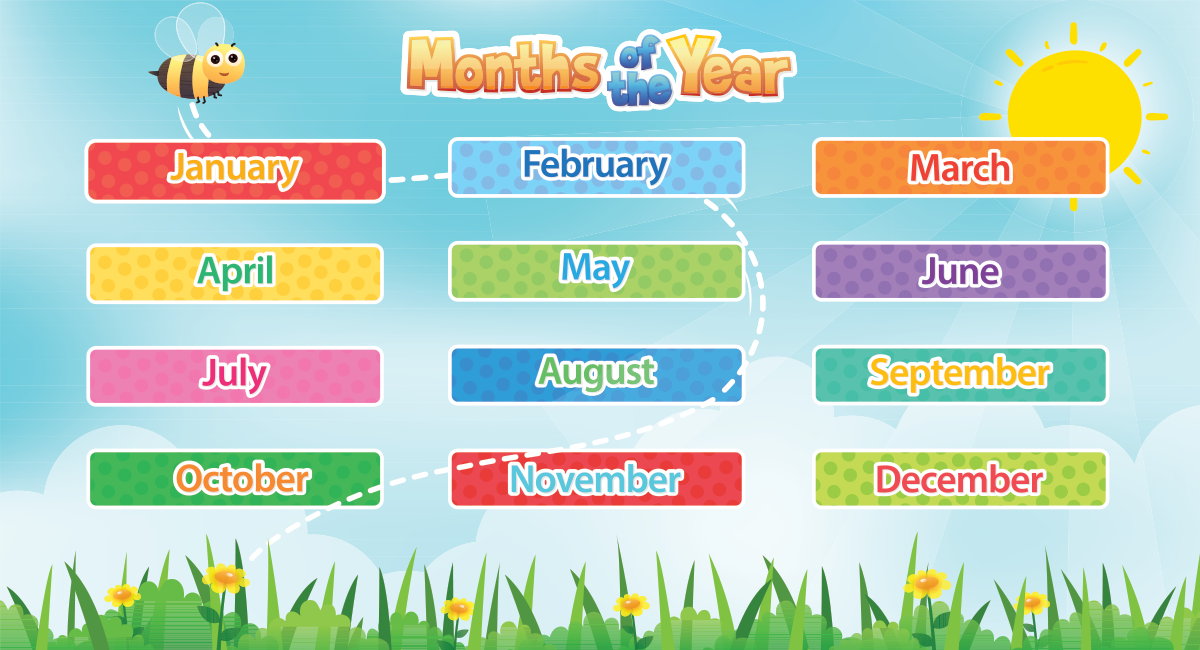
📅 Fun Facts About the Months of the Year
Here are some fun details about each month to share with your child after listening to the ABCmouse “Months of the Year” Song.
- January: This is the first month of the year. January has 31 days and is considered the coldest month.
- February: February is the shortest month with 28 days. It has 29 days in leap years, which occur every four years!
- March: This month marks the start of spring, with southern areas warming up first and northern areas staying cool. March has 31 days.
- April: Known for rain showers, April has 30 days and often brings windy, stormy weather.
- May: May has 31 days and is associated with warmer weather and plants growing and flowering.
- June: June has 30 days and is considered the halfway point of the year.
- July: July is a popular time for vacations and typically has hot, sunny weather. This month has 31 days.
- August: This month has 31 days and is considered the last full month of summer. It’s often hot and sunny.
- September: September has 30 days and marks the start of fall.
- October: October has 31 days and is known for leaves changing color and eventually falling from trees.
- November: The 11th month of the year with 30 days, November brings colder weather.
- December: The final month of the year, December has 31 days and marks the start of winter.
Keep Learning About Seasons and Calendars with ABCmouse!
ABCmouse uses an engaging combination of songs, interactive games, digital books, and printable resources to help children learn about calendars and the seasons in a variety of ways.
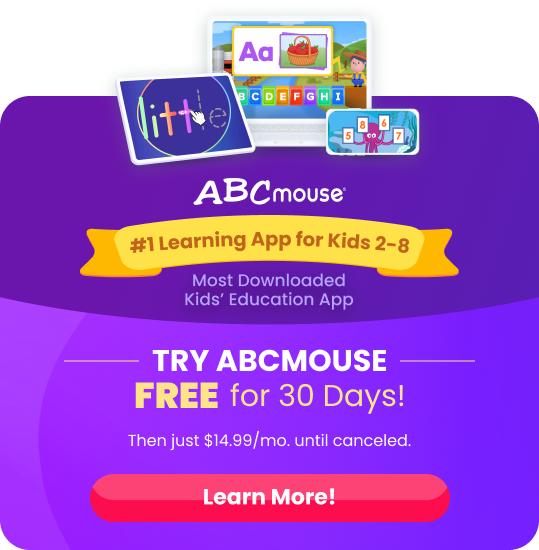
More Songs
“The Four Seasons” Song by ABCmouse
Online Games
Many of these games require an ABCmouse subscription to play. Try them now with a free 30-day trial. Sign up here to get started.
Number Scouts: Calendar: This game for first and second graders help boost calendar reading skills as children play.
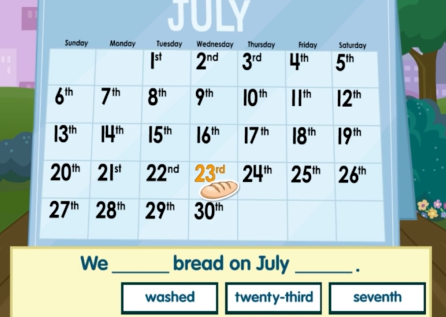
Chloe’s Party Calendar: In this game, children help Chloe organize and plan a party for her friends using her calendar.
Professor Hester’s New Calendar: Children can practice correctly ordering and punctuating dates as they help Professor Hestor transfer items from her wall calendar to her tablet’s calendar.
More Activities for Parents to Try at Home
Here are a few simple ways to support your child in learning the months of the year:
Create a Monthly Calendar: Frequently flip through the calendar and recite the months of the year in order. If your child is ready, invite them to fill in key events, holidays, or birthdays.
Sing Daily: Play the ABCmouse “Months of the Year” song every morning. Repetition is a great way to help children learn the months of the year in their proper order.
Match Months to Seasons: Discuss which months are associated with different weather or holidays. Talk about what you see, feel, and hear as the months and seasons change.
-
Reindeer Coloring Pages for Kids
Ignite your child’s holiday creativity with our Free Printable Reindeer Coloring Pages. Explore many festive designs including Rudolph, Santa’s sleigh, and more, perfect for kids of…
-
Long Vowel Sounds Worksheets
Explore ABCmouse Long Vowel Sounds worksheets! Perfect for Kindergarten, these sheets help boost reading skills through practice in recognizing and pronouncing long vowels. 📘✨
-
Free Printable Elf Coloring Pages for Kids
Explore 30 Free Printable Christmas Elf Coloring Pages for Kids, perfect for holiday fun! Get creative with elves, reindeer, and festive scenes. Ideal for family activities…
-
Three-Letter Word Tracing Worksheets for Kindergarten
Enhance your child’s writing and spelling skills with ABCmouse Three-Letter Sight Word Tracing Worksheets for Kindergarten. Ideal for letter recognition and word formation, these worksheets make…
-
Free Printable Number Tracing Worksheets
Discover the fun and educational benefits of Number Tracing Worksheets for preschool and Kindergarten! These worksheets offer a hands-on way for young learners to work towards…
-
Letter Tracing Worksheets for Kids
Boost your child’s letter recognition and handwriting skills with ABCmouse’s Alphabet Tracing Worksheets. Ideal for preschool and kindergarten, these engaging worksheets offer a colorful, fun approach…

